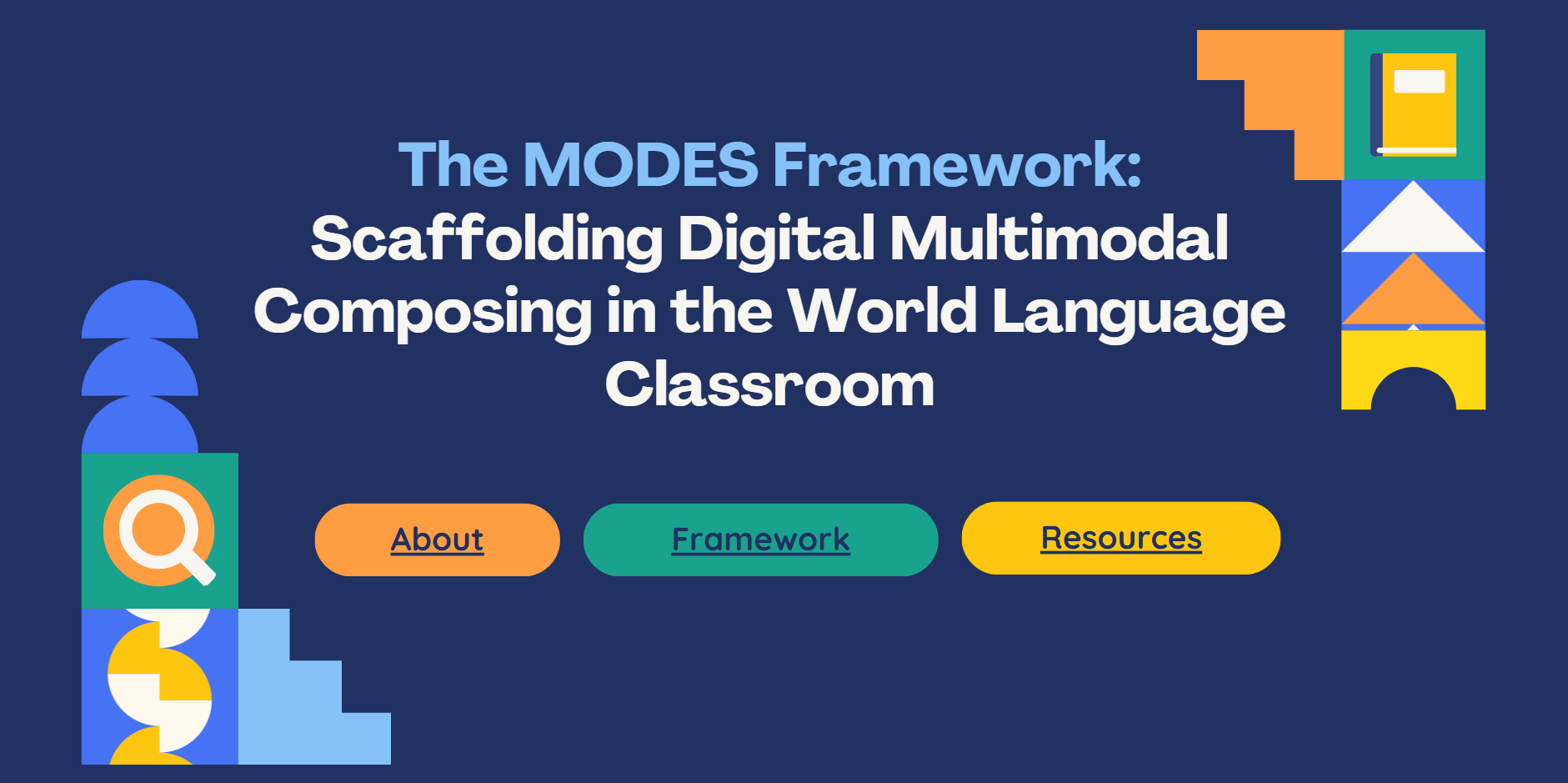The MODES Scaffolding Framework website is a free resource developed by Dr. Blaine Smith (Vanderbilt University) with the goal of helping teachers to integrate digital multimodal composing–visuals, sounds, text and movement–in the classroom. The site offers a guide for World Languages teachers to design instruction related to digital multimodal composing and specific strategies for supporting students during this process.
On the MODES website, you will find a linked white paper that explains the benefits of this approach, and details the framework elements with strategies for each.

It also hosts connected resources, among them a set of instructional materials including:
- The MODES Scaffolding Planning Guide
- Multimodal Composing Tools & Examples
- Multimodal Analysis Graphic Organizer
- AI Tools for Digital Multimodal Composing
- Example: YouTube Video for Having Students Analyze Modes
- Example: Multimodal Project Assignment Sheet
- Example: Multimodal Project Grading Sheet
Research on multimodal composing has demonstrated benefits including a) increased engagement, b) multiple points of entry with a variety of modalities for students to represent themselves and their cultures, and c) nonlinguistic modes as tools for thinking to support literacy and content learning.
➣ Access the MODES OER here:

This resource was developed by a CERCLL’s Language Resource Center grant (P229A220011) from the U.S. Department of Education (CFDA 84.229A).

